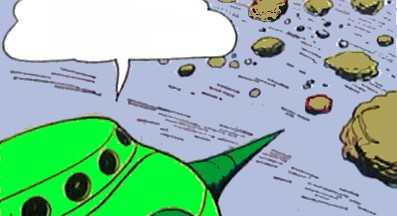 |
|
U$29
Island in the Sky - 1960 Synopsis:
Scrooge decides to hide all his money on an
asteroid far away from thieves. But the asteroid
is inhabited...
Comments:
Apart from one long trip to Europe, Barks
rarely left his native country. Still, his name
is known outside Earth because he had a small
asteroid named after him. In 1982 Ted Bowell of
the Lowell Observatory in Arizona discovered an
asteroid which was officially named 2730Barks
by Cornell University. In a later interview Barks
commented on the event:
'In one of my later stories, called 'Island in
the Sky', sometime in the sixties, the ducks try
to find a place to hide Uncle Scrooge's money,
and they passed a bunch of these small asteroids
on the way there. One of the men there at Cornell
University, where they had a whole laboratory for
the study of the asteroids, read that comic book
and thought that was quite a thing, that these
ducks could run onto a bunch of peculiar
asteroids on their way to the asteroid belt.
Anyway, they thought that was pretty good. My
stories made the asteroids interesting, and
opened a possibility that there might even be
some among them that would have a few vegetables
growing on it. And so they named one of their
discoveries after me. He wrote to tell me that
the surface was approximately 100 hectares (nearly
250 acres or 1 square kilometer (Editor's remark))
in size. In any case it would be big enough for a
money bin...'. (See the official letter HERE.)
Barks' comments:
In 1983 two of the greatest Disney legends, Floyd
Gottfredson (mouseman) and Carl Barks (duckman),
were interviewed together and asked to name the
favourite story they had written. Gottfredson
explained that his favourite was Island in the
Sky (ran as a newspaper strip from 1936 to 1937 -
Editor's remark), a story based on a secret
atomic-power formula. Then Barks astonished
everyone present by announcing: 'The one I like
best now after all these years in looking back
over the whole chain of them that I did, was
Island in the Sky'! Barks was referring to his
own story in U$29 which, by pure
chance, had the same title as Gottfredson's story...
|